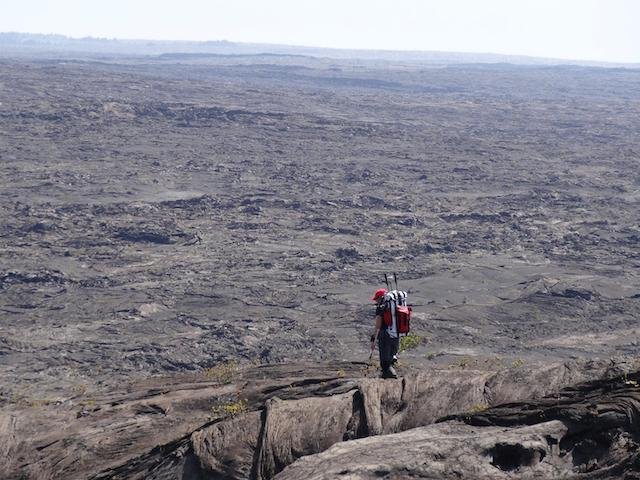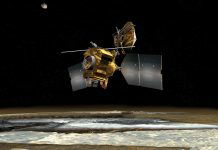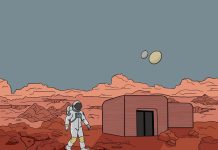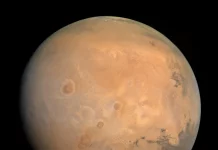
In a new international study, researchers are trying to solve one of the biggest problems of space travel to Mars:
What happens when we get there?
The research was conducted by scientists from McMaster’s School of Geography & Earth Sciences, NASA, and other scientists from all over the world.
NASA plans to do a series of crewed missions to Mars in the 2030s, culminating with a surface landing.
But sending astronauts to Mars to search for life no easy task. There are scientific, operational logistical, and communications challenges.
In the current study, the team focuses on one big challenge: How to conduct meaningful science in such harsh and dangerous conditions.
On Mars, time and resources for searching new life are highly limited. It is also hard to send valuable information back to Earth and get input from the science support team on Earth.
The team simulated mission conditions on Mars.
This included conducting fieldwork in the Craters of the Moon National Park Monument and Preserve in Idaho and the Hawaii Volcanoes National Park.
These places have fine-grained rocks similar to rocks found on Mars.
Examining the organic biomarkers of microbial life linked to the rocks can help scientists make preparations for searching for life on Mars.
It can help scientists identify the best place to potentially find evidence of life and targeted the rock samples that contain a lot of organic material for further analysis.
Another problem during searching life on Mars will be sharing information when scientists are millions of kilometers apart.
Methods like video and photo transmissions, voice messaging, and texting using specialized software are tested to ensure smooth communications and mission control between field researchers.
The researchers suggest that there will be a big delay in communications between scientists on Mars and research team members on Earth.
It is important to improve the operation to ensure astronauts don’t have idle time and the flow of information continues.
One author of the study is Allyson Brady, a post-doctoral fellow in McMaster’s School of Geography & Earth Sciences.
The study findings are published in the journal Astrobiology.
Copyright © 2019 Knowridge Science Report. All rights reserved.



